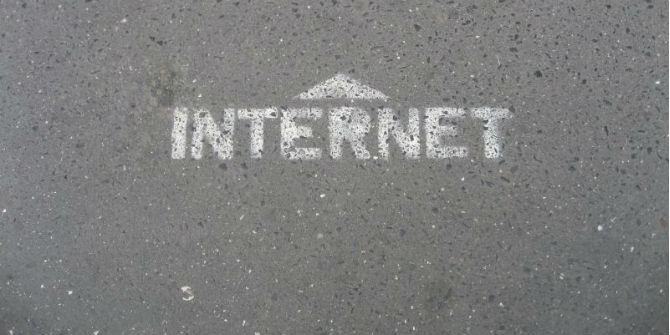 The BBC’s new Charter commenced on 1 January 2017 and on 3 April, Ofcom will become the BBC’s first external regulator. Jelena Dzakula, a researcher here at the Media Policy Project and a lecturer at the University of Leicester, looks at decisions have already been made, the road ahead, and potential issues that might affect how the new system of BBC governance will work in practice.
The BBC’s new Charter commenced on 1 January 2017 and on 3 April, Ofcom will become the BBC’s first external regulator. Jelena Dzakula, a researcher here at the Media Policy Project and a lecturer at the University of Leicester, looks at decisions have already been made, the road ahead, and potential issues that might affect how the new system of BBC governance will work in practice.
The period of the renewal of the BBC Charter was intense with negotiations, debate and controversy. You might think that the ideological and power struggle over the future of the BBC finished with Privy Council’s approval on 16 November 2016, but, as any regulatory scholar would tell you, implementation changes policy: the devil is in the detail.
The implementation of the Charter has started on two fronts. After the Government launched a recruitment process, Theresa May has confirmed the appointment of Sir David Clementi as the new BBC Chair, the preferred candidate put forward by Culture Secretary Karen Bradley. In March 2016, Clementi published the report on the future of the BBC governance, and he comes with a wealth of managerial experience, both of which make him suitable for the post. However, it is not clear to what extent he will ensure BBC’s political independence and its focus on serving the public. Other Board members need to be appointed as well, and the way this will be handled has caused controversy. BBC governance has been widely debated, one of the conclusions from the MPP’s event in late 2015 on the issue was that it certainly needs to be reformed, but it remains to be seen whether the Board and its Chair will ensure the required and genuine independence and improve the system.
On the other front, Ofcom is currently consulting on the way it will perform the first external regulation of the BBC. The consultations on two out of three areas that will fall under its remit – content standards and competition – have recently closed, and there are no surprises here. Ofcom’s Broadcasting Code is being changed so it can be applied to BBC services, including the BBC iPlayer for the first time, and it will all work under the ‘BBC First’ complaints framework with Ofcom handling referred complaints, conducting reviews, oversight, investigations and retaining the power to ‘step in’. In the area of competition, there are no significant changes to the way system has operated: the BBC will do the Public Value Tests, and Ofcom will conduct Market Impact Assessments, and reach the final decisions.
However, Ofcom decided to keep us on our toes and leave the best for last. It will consult in the spring on the area of performance, and this part of its remit covers the highly contentious issue of ‘distinctiveness’, which has been seen as a focus that offers no real public value. There are broadly three points of contention here:
- The BBC should not be regulated for distinctiveness
- It would be very challenging to create a meaningful definition of distinctiveness as well as an appropriate measurement framework
- Ofcom is not seen as suitable to perform this essentially editorial role
When it comes to the first one, the battle has been lost amid much criticism from the academic community. One of the BBC’s public values now is distinctiveness and this is set in the Royal Charter. Done and dusted.
When it comes to the definition of distinctiveness, MPP’s Damian Tambini has written about different ways to conceptualise and operationalise the term, and there will be a workshop dedicated to this issue at the forthcoming Oxford Media Convention organised by the IPPR with input from the LSE MPP.
When it comes to how Ofcom interprets the concept, the documents published offer a glimpse of Ofcom’s approach, although not in much detail. It seems that Ofcom is well aware of the complexities and is taking this job seriously. As the documents state, Ofcom does recognise that ‘tastes, and therefore what is likely to be distinctive to audiences, will change over time, and [we] do not underestimate the challenge of creating meaningful measures for distinctiveness’. They propose a variety of performance measures, in addition to the research they are already doing, such as looking at investment into original content, the availability, accessibility, and consumption of BBC’s content, contextual factors, as well as audience research on perceptions but also impact. Here it is important not to rely too much on the idea of ‘taste’ but to create some deliberative ways to engage the audiences on this issue. It is true that the concept and measurement of distinctiveness is challenging, and it will require some expert input that would be able to go beyond ‘perceptions’ of BBC programmes.
Finally, on the third point of contention, the worry has been that, as a market-oriented, light-touch regulator focusing on competition, Ofcom would not be able to achieve the right balance when it comes to quality-based value judgements on editorial content and decisions. In addition, Ofcom is an evidence-based regulator, and distinctiveness does not lend itself easily to measurement. If Ofcom focuses on finding an appropriate framework for measurement, the value of distinctiveness might be lost. So it is not a surprise that everyone is very eager to see how Ofcom will handle this.
In all fairness, Ofcom has come a long way from its establishment when it believed content regulation would disappear and when its first Content Board Chairman was offered the job with the sentence ‘Philip, I want you to be the last Governor of Hong Kong!’
But, Ofcom is still to convince us whether it has come far enough. Although there are five public purposes listed in the Royal Charter, Ofcom announced that its priority in regulating BBC’s performance will be to hold it to account for its distinctiveness, programming that meets the needs of the UK’s Nations and Regions, and its diversity. The fact that only three areas of performance have been singled out is controversial and highly political. What Ofcom will not focus on at the beginning, is holding the BBC to account for its provision of impartial news and information to help people understand and engage with the world around them, and for its work to support learning for people of all ages. It would have been fairer for the BBC if it was the other way around, and if both the BBC and Ofcom had more time to work on the concept and implementation of ‘distinctiveness’. The BBC is already established in the area of provision of impartial news and educational and learning programmes. Ofcom is also experienced in looking into these areas with its implementation of the Broadcasting Code. Although the Government’s priority was to regulate the BBC for distinctiveness, maybe Ofcom’s priorities, as an independent regulator, could have been different.
This post gives the views of the author and does not represent the position of the LSE Media Policy Project blog, nor of the London School of Economics and Political Science.





